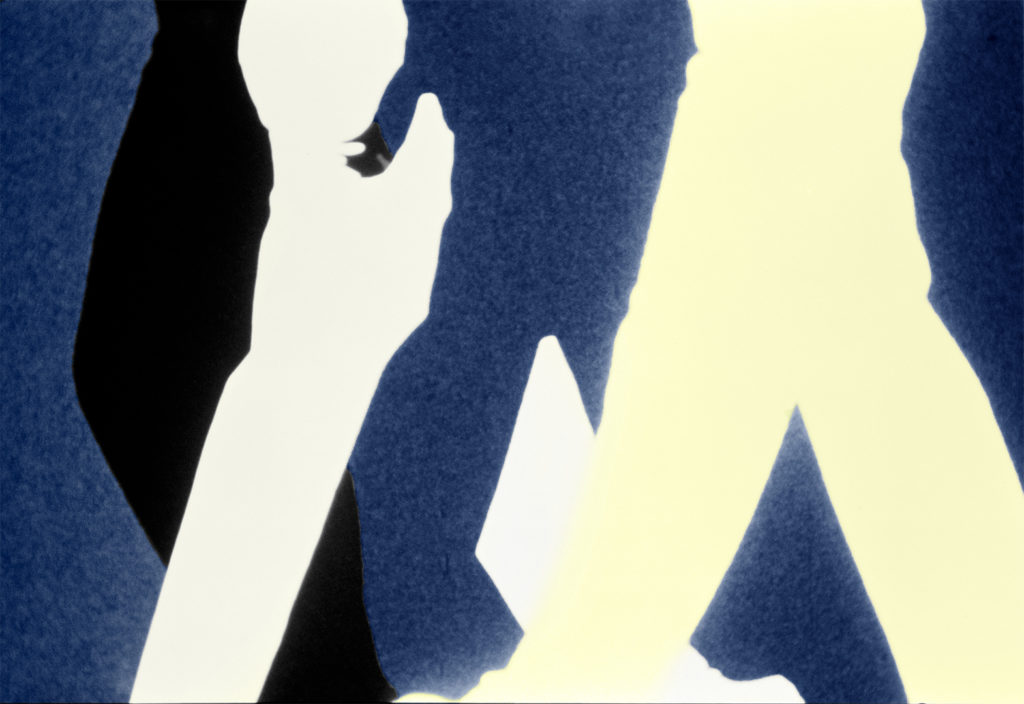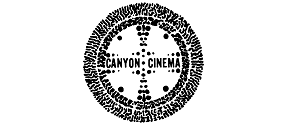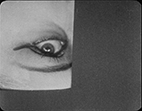Canyon Cinema Across Time and Space @ YBCA, November 1-30, 2023
Posted October 26th, 2023 in Announcements, Events and Screenings, News / Events
Throughout the month of November, as part of YBCA’s Bay Area Now 9 triennial exhibition, you can experience Canyon Cinema Across Time and Space. This selection of films from the Canyon Cinema collection traces six decades of experimental filmmaking in the Bay Area; from Canyon’s original home in the East Bay hamlet of Canyon, California, to San Francisco’s frenetic Market Street, to a Berkeley record shop, and many points between. Curated by Canyon Cinema executive director Brett Kashmere.

Canyon Cinema Across Time and Space
November 1–30, 2023
Yerba Buena Center for the Arts, San Francisco
Presented in association with Bay Area Now 9
Info: ybca.org/event/canyon-cinema-across-time-and-space/
Program (loops on the hour):
Mr. Hayashi (Bruce Baillie, 1961, 3 min, b&w, 16mm presented as digital file)
Short document of a man, made originally as a Canyon Cinema “Newsreel.” Courtesy of Anthology Film Archives.
Saving the Proof (Karen Holmes, 1979, 11 min, color, 16mm presented as digital file)
“Saving the Proof is a complex transformation of an ordinary action: a woman walking. The rhythm of her gait and the pulsating, repetitive sounds counterpoint with alternating images of her transversing city streets, passing windows and fences, descending stairs. As the images repeat and vary with mathematical precision, one becomes more interested in the process itself than in her destination. What appears to have been simple breaks down into a complex system of dichotomies, both in form and in content: city/country, completeness/fragmentation, presence/absence, illusion/reality, light/shadow, negative/positive, fiction/documentation. The film climaxes in a spectacular burst, as one feels that the film is literally coming apart. It ends as it began, as one long chain that can be interrupted at any point, and yet can only be seen as a whole piece.” – Margaret Ganahl, Camera Obscura
Hotel Cartograph (Scott Stark, 1983, 11 min, color, 16mm presented as digital file)
A camera mounted on a movable cart, pointing down at the floor, passes over a seemingly endless succession of gaudy carpets and surfaces in a single shot through a major hotel. The movements across the 2-dimensional space, and in and out of elevators through 3-dimensional space, suggest a conceptual map of the visible environment, which is perhaps drawn by the camera itself.
No-Zone (Greta Snider, 1993, 18 min, color, 16mm presented as digital file)
“Greta S. incorporates a sprinkling of traditional bay-area style – cutting and pasting images from an obscure range of memorabilia footage and pop culture – as she guides us through the tribulations and ecstasies of life in the 90s. No-Zone generates the feeling of reading a book, as a gamut of emotions are brought to life in a series of short fables. The disturbing issues of AIDS, nuclear waste in one’s front yard, and the ever present mid-life crisis, are translated through gun visuals, manipulated text and in-your-face close-ups. Paranoia and discontent with the state of the world are coolly relayed in soap opera time, via two of the film’s episodes – Sickness and Toxin. Relief from this environment comes in the form of doing 30kms on a skateboard, downtown and foraging for edible berries in the wilderness… Alas no happy ending here, as a mini-doc focusing on The End of History, stakes its claim as the crowing glory.” – Sally Bonython, Melbourne International Film Festival
Market Street (Tomonari Nishikawa, 2005, 5 min, b&w, 16mm presented as digital file)
A kinetic study of San Francisco’s Market Street, made on the occasion of A Trip Down Market Street 1905/2005: An Outdoor Centennial Celebration, the celebration of the 100th anniversary of the famous piece of historic film material that shows San Francisco before the earthquake in 1906. Commissioned by Exploratorium and the San Francisco Art Commission.
Reid’s Records (Paige Taul, 2018, 4 min, b&w, digital file)
An interview with David Reid, current owner and inheritor of Reid’s Records in Berkeley, California reflecting on the impact of gentrification on business and the neighborhood.
Artist Biographies
Bruce Baillie (1931-2020) was an American experimental filmmaker based in the San Francisco Bay Area. He was the co-founder of Canyon Cinema and San Francisco Cinematheque and a guiding member of the New American Cinema.
Karen Holmes’s experimental films have exhibited widely throughout the United States and Europe. As a professor in the School of Cinema at San Francisco State Unviersity, Holmes has nurtured the spirit of experimental filmmaking for over thirty years. She currently lives in Alameda, CA.
Tomonari Nishikawa was born in Nagoya, Aichi Prefecture in 1969. He studied economics in Japan, but quickly became disenchanted, finding himself increasingly enthralled by European cinema, and the films of Shuji Terayama and Toshio Matsumoto. In 1999 he immigrated to the United States with the goal of becoming a filmmaker, and began studying cinema and philosophy at SUNY Binghamton in 2001 as a student of Ken Jacobs, Julie Murray, and Vincent Grenier. He later received his MFA in Film from the San Francisco Art Institute, studying under Ernie Gehr. Nishikawa has completed nearly 20 films since 2003, which have screened at film festivals and museums internationally. He lives between Japan and the USA, and currently teaches in the Cinema Department at Binghamton University.
Greta Snider has made films since discovering the art form at Antioch College in Ohio, and promptly moved to San Francisco to join a thriving low-budget experimental film scene, where she continues to make, screen, and teach about cinema. In her work, Snider utilizes a combination of original and archival material to create nonfiction art cinema of a personal nature. Her single screen films on 16mm lean heavily on the creative use of montage, interweaving the personal and historical in a number of short essay films. Her stereoscopic performances and installations take the materiality of film and family photos, to reshape themes of memory, loss, and personal histories in a more intimate, affective experience. She has screened in museums throughout the world, and also in bars, alleyways, and once, at an all-night international rave party in a penthouse in the Shibuya. Snider teaches experimental filmmaking at San Francisco State University, where she is faculty advisor to The Archive Project.
Scott Stark has produced more than 75 films and videos since 1980. Additionally, he has created a number of gallery and non-gallery installations using film and video, and elaborate photographic collages using large grids of images. Born and educated in the midwest, he has always been interested in aggressively pushing his work beyond the threshold of traditional viewing expectations, challenging the audience to question its relationship to the cinematic process; yet he also tries to build into the work elements of humor and incongruity that allow the viewer an entryway into the work while maintaining a critical distance. Both a passionate purist and a cynical skeptic, he likes to emphasize the physicality of film while cross-referencing it to the world outside the theater, attempting to lay bare the paradoxes of modern culture and the magical nature of the perceptual experience. He currently lives in San Francisco.
Paige Taul is an Oakland, CA native who received her B.A. in Studio Art with a concentration in cinematography from the University of Virginia and her M.F.A in Moving Image from the University of Illinois at Chicago. She is a visiting artist at the School of the Art Institute in Chicago.


